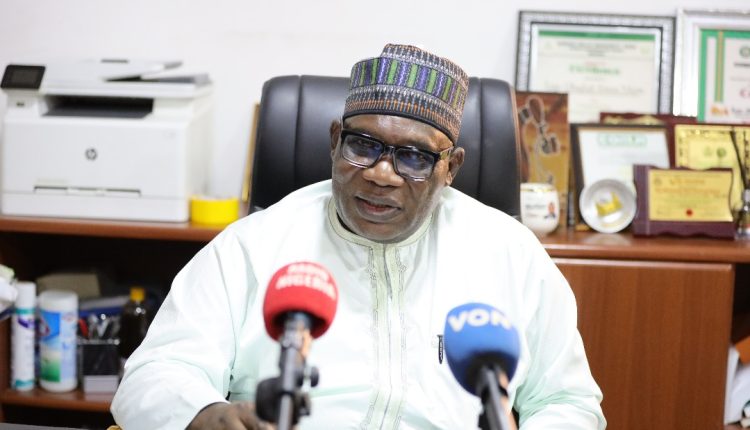BREAKING: Mining Office Generates N6.95bn From Reforms, Digitisation In Q1

The Nigerian Mining Cadastre Office (MCO) has announced a revenue of over N6.95 billion for the first quarter of 2025, which it attributed to sweeping reforms, full digitisation, and a firm push for transparency in the solid minerals sector.
Speaking in an interview with journalists in Abuja, Director General of MCO, Engr. Obadiah Simon-Nkom, said the revenue breakthrough was largely driven by the deployment of the EMC+ system—an end-to-end electronic platform for processing mineral title applications, introduced in November 2022.
“This is our only submission channel—completely online, transparent, efficient, and real-time,” Simon-Nkom said, noting that the digital transformation has significantly improved accountability and investor confidence.
The DG explained that these reforms aligned with the Minister of Solid Minerals Development’s seven-point agenda, which targets illegal mining and sector inefficiencies.
He highlighted the agency’s move from manual polygon-based systems to a web-based cadastral platform that allows global visibility into application progress.
“What we see in Abuja, applicants around the world can see too,” he added.
Simon-Nkom emphasised the MCO’s close collaboration with oversight bodies, including the ICPC, EFCC, DSS, NEITI, NFIU, and the Civil Defence Corps.
He noted that the ICPC recently cleared the office of compliance issues and praised its transparency efforts. The NFIU, he added, viewes agencies like MCO as critical to Nigeria’s goal of exiting the FATF “grey list.”
The N6.95 billion was generated from structured service charges such as license processing, annual fees, penalties for late renewal, and certification requests. Of 955 applications received, 651 were for exploration licenses—reflecting the foundational role of exploration in mining.
“The rule is simple: use it or lose it. Hoarding undeveloped mineral-rich land is no longer tolerated,” he said.
Simon-Nkom added that the recalibration of license fees ensures fairness by linking charges to land size. “Those holding larger land masses now pay proportionately more,” he explained.
The MCO processed 152 license modifications in Q1, covering changes in mineral type, ownership transfers, relinquishments, and renewals.
He said this streamlining effort is key to eliminating speculators and making land more accessible to genuine investors.
The agency is also considering a policy to require partial land surrender after a first license renewal, in line with global best practices.
Beyond licensing, the MCO plays a role in settling land and community disputes.
Simon-Nkom described the office as a “mini court” that handles petitions with legal and technical diligence, including community engagement and validation by traditional leaders.
“We don’t ignore complaints—we investigate and resolve them to avoid unnecessary litigation,” he said.
Zonal offices have been set up in all six geopolitical zones to bring services closer to stakeholders. Niger State led the Q1 application submissions with 75, due to its gold and precious mineral deposits.
The MCO maintains a 100% success rate in litigation, which Simon-Nkom credited to strict adherence to legal protocols.
“Even when mistakes occur, we resolve them within the law—so most litigants choose to settle,” he said.
Looking ahead, he reaffirmed the agency’s commitment to sustaining reforms, strengthening inter-agency ties, and meeting global standards.
“We’re on the right track. The international community is paying attention, and investors are responding,” he stated.
